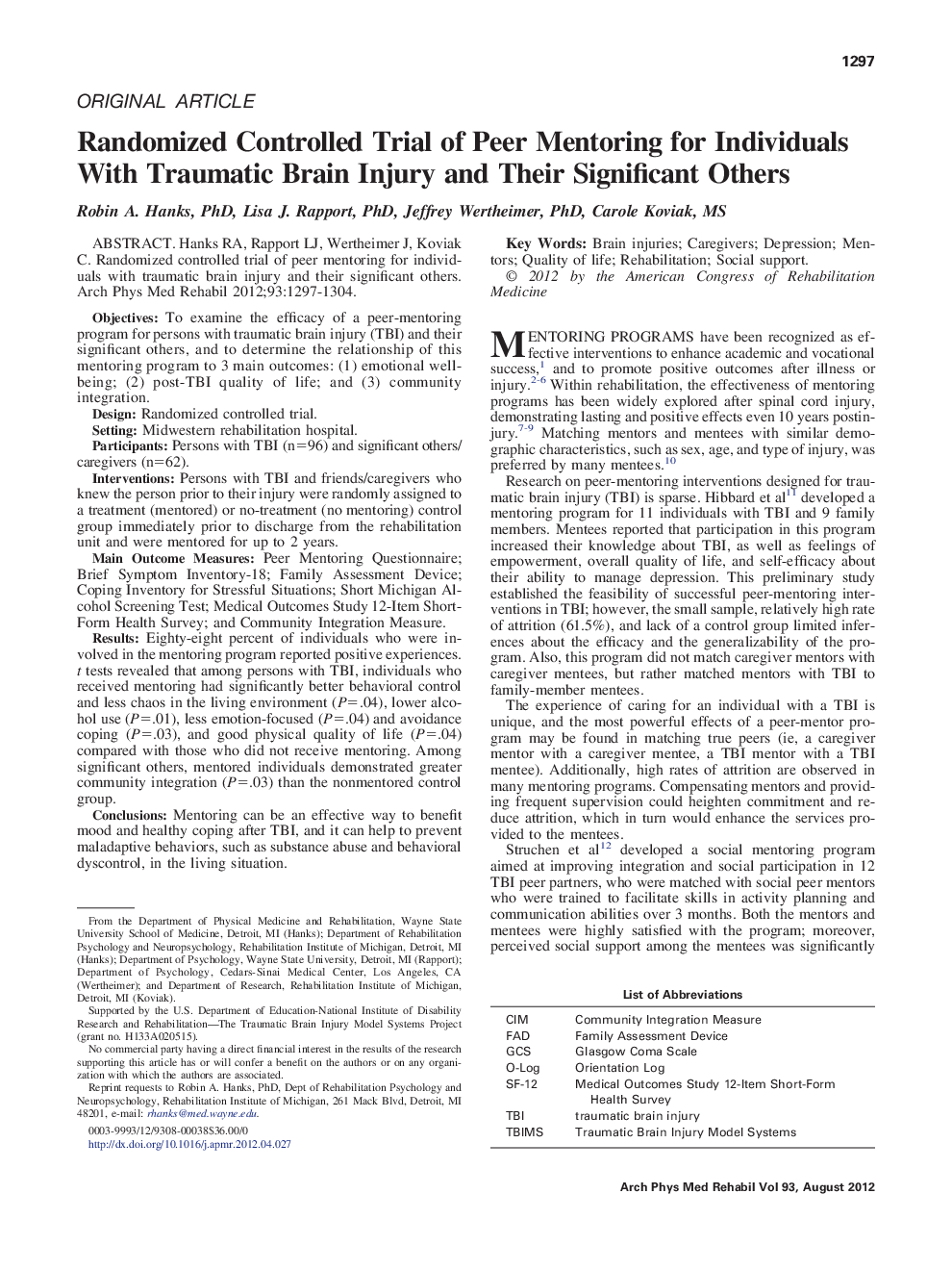| کد مقاله | کد نشریه | سال انتشار | مقاله انگلیسی | نسخه تمام متن |
|---|---|---|---|---|
| 3449548 | 1595722 | 2012 | 8 صفحه PDF | دانلود رایگان |

Hanks RA, Rapport LJ, Wertheimer J, Koviak C. Randomized controlled trial of peer mentoring for individuals with traumatic brain injury and their significant others.ObjectivesTo examine the efficacy of a peer-mentoring program for persons with traumatic brain injury (TBI) and their significant others, and to determine the relationship of this mentoring program to 3 main outcomes: (1) emotional well-being; (2) post-TBI quality of life; and (3) community integration.DesignRandomized controlled trial.SettingMidwestern rehabilitation hospital.ParticipantsPersons with TBI (n=96) and significant others/caregivers (n=62).InterventionsPersons with TBI and friends/caregivers who knew the person prior to their injury were randomly assigned to a treatment (mentored) or no-treatment (no mentoring) control group immediately prior to discharge from the rehabilitation unit and were mentored for up to 2 years.Main Outcome MeasuresPeer Mentoring Questionnaire; Brief Symptom Inventory-18; Family Assessment Device; Coping Inventory for Stressful Situations; Short Michigan Alcohol Screening Test; Medical Outcomes Study 12-Item Short-Form Health Survey; and Community Integration Measure.ResultsEighty-eight percent of individuals who were involved in the mentoring program reported positive experiences. t tests revealed that among persons with TBI, individuals who received mentoring had significantly better behavioral control and less chaos in the living environment (P=.04), lower alcohol use (P=.01), less emotion-focused (P=.04) and avoidance coping (P=.03), and good physical quality of life (P=.04) compared with those who did not receive mentoring. Among significant others, mentored individuals demonstrated greater community integration (P=.03) than the nonmentored control group.ConclusionsMentoring can be an effective way to benefit mood and healthy coping after TBI, and it can help to prevent maladaptive behaviors, such as substance abuse and behavioral dyscontrol, in the living situation.
Journal: Archives of Physical Medicine and Rehabilitation - Volume 93, Issue 8, August 2012, Pages 1297–1304